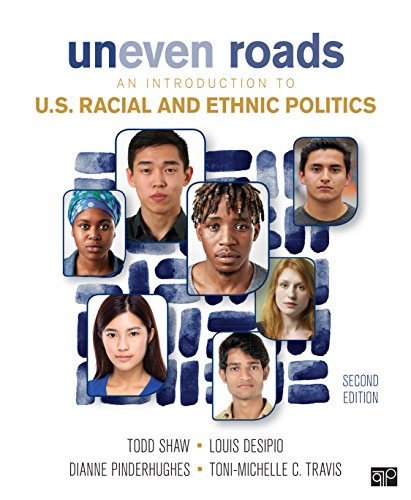Uneven Roads An Introduction to U.S. Racial and Ethnic Politics
no information available
This ground-breaking new volume explores when, why, and how race and ethnicity matter in U.S. politics. Using the metaphor of a road, with twists, turns, and dead ends, Uneven Roads begins with an introduction to broad political racialization and the roots of modern interpretations of race and ethnicity. Historical chapters on each of the five groups identified in the U.S. Census—Native American, African American, Latino, Asian American, and White—offer an engaging narrative on race, prejudice, equal rights and opportunity up to the 1960s. Policy and social issue chapters carry the story up to the present day, providing a wide lens on topics including voting rights, political representation, education and criminal justice policies, and the immigrant experience. A final chapter on intersectionality examines how groups go beyond the boundaries of race and ethnicity to come together on matters of class, gender, and sexuality. No other book on the market maps U.S. race and ethnic politics with the same breadth and scope as Uneven Roads. The book’s structure and narrative are designed to encourage comparison and reflection. Students are provided with the history and context of U.S. race and ethnic politics and build the skills to apply their own conclusions. Centred in political science, but with interdisciplinary appeal, this text provides both a sobering and hopeful assessment of American racial progress. ... Read more Read less











